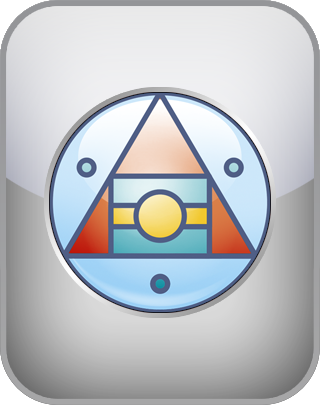Internal Tormentors Test
The mystical Ancient Greek text, the Corpus Hermeticum, culminated with the secret sermon on the mountain, where the legendary spiritual master Hermes Trismegistus details the 12 inner tormentors holding the soul back on its path to enlightenment. Taking stock of one’s tormentors thus points the way to a better life.
This test measures the strength of your inner tormentors. To take the test, enter your input below.
Question 1 of 60
Manipulating others to get what I want seems like a necessary skill in life.
| Disagree | Agree |
NEXT
The IDRLabs Irrational Tormentors Test is inspired by the Twelve Irrational Tormentors found in the Corpus Hermeticum, Book XIII. This text is part of a collection of Greek writings attributed to Hermes Trismegistus, dating from the 2nd and 3rd centuries AD.
The test provides feedback such as the following:
Each tormentor corresponds to a negative influence that distracts from enlightenment and rational understanding. Overcoming these tormentors is in the context of Hermeticism, which is seen as essential for spiritual growth and achieving a higher state of wisdom and understanding.
Ignorance: Denotes the lack of knowledge and understanding because the soul is clouded by it. It is a primary source of human suffering and misdirection and can be seen as the root from which many other spiritual afflictions grow, leading to a life disconnected from the essence of the divine.
Sorrow: Refers to the deep sadness and grief that arise from attachment to the ephemeral world. It is a reaction to loss and impermanence, a wish for things to be other than they are, hindering the soul's journey by anchoring it to temporary states and obscuring the joy found in eternal truths.
Intemperance: Denotes a lack of self-control or moderation, especially concerning physical desires and pleasures. It leads to inequity and imbalance in life, causing harm to oneself and others, and distracting from the pursuit of higher knowledge and spiritual fulfillment.
Lust: Refers to an intense desire, especially for physical pleasures, that overrides reason and spiritual aspirations. It ensnares the seeker in materialistic pursuits, obscuring the soul's ability to ascend towards divine union.
Injustice: Denotes actions and attitudes that go against the laws of the divine, causing harm to others and oneself. It represents a misalignment with the cosmic order, leading to disharmony and further over-focusing on material conditions.
Greed: Refers to an insatiable longing for more than one needs, particularly material wealth. It signifies a deep insecurity and a misunderstanding of true value, leading away from spiritual composure and inner contentment.
Deceit: Denotes falsehood and the act of misleading oneself or others. It is a barrier to enlightenment as it promotes illusion over reality, and hinders the soul's ability to see clearly by fostering a world of illusions.
Envy: Refers to resenting the good fortune of others, desiring what they have. It stems from a lack of understanding of one's own value and purpose, leading to bitterness and hindering spiritual growth by focusing on external rather than internal treasures.
Treachery: Denotes betrayal and dishonesty, especially towards those who trust. It is a violation of the divine law, leading to discord and disconnection from the unity of all existence and obstructing the path to enlightenment by sowing seeds of distrust.
Anger: Refers to intense wrath that consumes reason and discernment, leading to destruction and harm. It represents a fire that, unless controlled, destroys the potential for spiritual insight, keeping the soul tethered to the lower vibrations of life.
Recklessness: Denotes a careless disregard for consequences, leading to unnecessary suffering for oneself and others. It signifies a lack of wisdom and foresight, impeding the soul's progression by fostering imprudent actions that are misaligned with the divine plan.
Malice: Refers to the intention to cause harm, reflecting a profound disconnection from love and the divine. It is a poison that corrupts the soul, preventing the experience of unity and compassion that are essential for spiritual ascension.
The Irrational Tormentors Test is inspired by psychometric methodology and the philosophical writings of Hermes Trismegistus. While the Irrational Tormentors Test is inspired by psychometric methodology and literary research, it cannot be used to provide clinical assessments or an accurate evaluation of your personality. Clinical assessments should always be done in cooperation with a mental health professional. For more information about any of our online tests and quizzes, please consult our Terms of Service.

